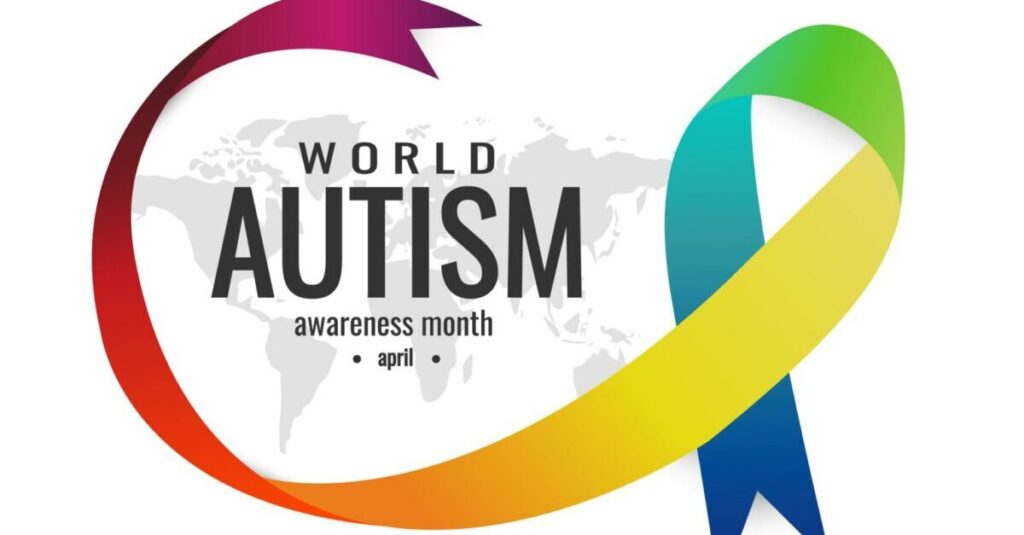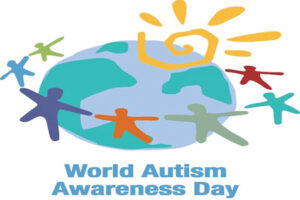6 Fascinating Facts About Autism Disorder You Probably Didn't Know

Rather, I think society should focus on building a greater awareness and acceptance of the disorder in general. Every day. Every month. Every year.
While I am not a fan of a single month for awareness, I do realize and appreciate the positive attention that autism is given during the month. I also like how the declared month continues to evolve on what organizers hope to accomplish.
While most organizations still refer to special events held in April or during other times of the year as ways to highlight Autism Awareness, at least one, Autism Society, has shifted the name to a newer branding of Autism Acceptance.
I personally like the transition of autism awareness campaigns because I think a growing number of people are aware of autism. Acceptance is improving, but we are not there yet.
Regardless of the name chosen or used, I agree that special events or even the dedicated month for autism awareness campaigns can provide a good opportunity raise awareness, acceptance, and even appreciation of autism. The key is to help people to not only understand autism facts and other things about autism such as behaviors and challenges, but to celebrate differences overall.
Events are planned around the world every April to reduce the stigma of having autism as well as promote inclusion and acceptance. Numerous organizations and groups use World Autism Awareness Month to list numerous facts about autism.
And while I haven’t ever directly participated in autism awareness campaigns as a way to help people to better learn facts about autism disorder, I think that anything that can raise awareness is a good thing.
An interesting aspect of this month from the perspective of an autistic adult are the various articles talking about how the diagnosis of autism has risen significantly in recent years.
Most findings talk about children, because that is the age when most learn about being on the spectrum.

So, as part of my efforts to raise awareness and acceptance of autism in general, I thought I would mention 6 interesting facts about autism that many people may not know.
Here goes:
6 Facts About Autism Disorder
-
The word “autism” comes from the Greek word “autos,” meaning self.
The literal translation then of autism is “alone.” That is certainly not a “fun fact about autism,” but it can be true. Awareness and connection can help people with autism not feel alone.
-
Autism is the fastest growing developmental disorder.
According to a report from the Centers for Disease Control and Prevention, 27.6 in 1,000 children in the U.S. were diagnosed with ASD in 2020. That compares to 6.7 in 1,000 children in 2000. This means 1 in 36 children in the U.S. get diagnosed with ASD, up from 1 in 150 children 20 years ago.
While statistics may differ depending on source, every place I have read is consistent in that the diagnosis of autism is on the rise everywhere. The answer to “what causes autism” seems to be based more on theories and speculation, but answers seem to consistently point to both environmental factors as well as genetics.
It is also untrue that diagnoses only occur in childhood.
A growing number of teens and adults are also being diagnosed. For some, understanding why they are different and what it means (and doesn’t mean) is transformative.
If you suspect you could be diagnosed, then by all means go get checked out. It is never too late to better understand yourself so that you can live your best life!
Read more:
Autism Adult Assessment – Why It’s Never Never Too Late To Be Diagnosed
Unveiling Hidden Struggles – Top 10 Autism Challenges Explored -
Males are more likely to have autism than females, but that is one of the autism facts that is being updated.
Theories abound about this fact about autism, but some point out that girls display autism differently or are able to mask their symptoms.
Current studies are suggesting that females also have autism, but because research has until now primarily focused on males, there is some catching up to do with studies. Autism facts about females on the spectrum do suggest that one reason they are not diagnosed earlier is because they mask to fit in better with society. And, isn’t that sad?
Read more:
Autism in Women Stereotypes – The Real Truth Revealed!
Autism Masking & Code Switching: How to Redefine Acceptance -
There is no “cure” to autism.
It is considered a lifelong disorder. There are treatment options and assistance to help navigate autism. Just know that having it doesn’t mean that you can’t live a spectacular, or at least happy and fulfilling, life.
Remember, being different than, doesn’t mean being less than. It’s a fact about autism that everyone should know and understand.
-
The creator of Pokémon, Japanese game designer Satoshi Tajiri, reportedly has autism.
I have mentioned in other articles many other famous people who have autism, including Elon Musk who openly stated it in his opening monologue on Saturday Night Live in 2021.
But I just learned of Satoshi, and he was apparently obsessed with bugs. He has stated that he wanted the games to bring the same joy as he had with his bug collecting of his childhood, which I find pretty cool.
-
“Why fit in when you were born to stand out?”
That is a great quote by Dr. Seuss, child author that wraps it all up quite well about having autism.
So, when you think about autism, try to keep in mind by knowing these facts about autism and that the disorder affects every individual differently.
Some of us may have numerous behavioral, emotional, or mental challenges, while others experience few. All of us have unique strengths and abilities.
Additionally, here are simple tasks that we all can and should do year-round and NOT only during Autism Acceptance (and/or Awareness) Month.
3 Easy Things We Can Do to Show Our Autism Support
- Become informed about autism, and what it is, as well as what it isn’t. Also learn about experiences of individuals with autism … like me!
Through education, you can better connect and understand those of us affected by ASD.
- Promote inclusion. I hope we can all do our parts to include and accept differences, in school, in the workplace, and out in the world in general.
If you are an employer, do things to demonstrate your commitment to inclusion. Don’t just mouth the words.
- Demonstrate your acceptance and awareness by advocating and connecting with individuals on the spectrum. By knowing these facts about autism and understanding what it is–and what it isn’t–we can all be a part of a better world!
Additional Challenges Individuals with Autism Face
Learn more about other issues that autistics face:
- New Research Reveals Autism Mental Health Linked to These Disorders
- Is Autism a Disability? Surprising Reasons for the Debate
- Autism and Holidays: Why Special Occasions Can Be Challenging
- 8 Popular Ways to Manage and Master Autistic Social Awkwardness
- Autism and Poor Hygiene: The Smelly Truth to Overcome
- Breaking Down Barriers that Challenge Autism and Friendships
- Anxiety and Autism: 5 Powerful Strategies to Conquer Emotions
- Growing Up Autistic: How I Overcame Challenges and Now Thrive
- 6 Ways to Tackle Autism Fireworks Anxiety and Sensory Overload
- Autism Family Support: 5 Ways to Achieve A Happy Household
Thanks for reading, and smile on!

 Through education, you can better connect and understand those of us affected by ASD.
Through education, you can better connect and understand those of us affected by ASD.